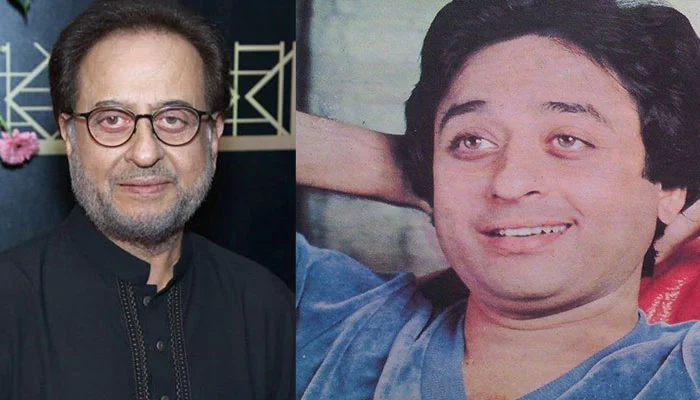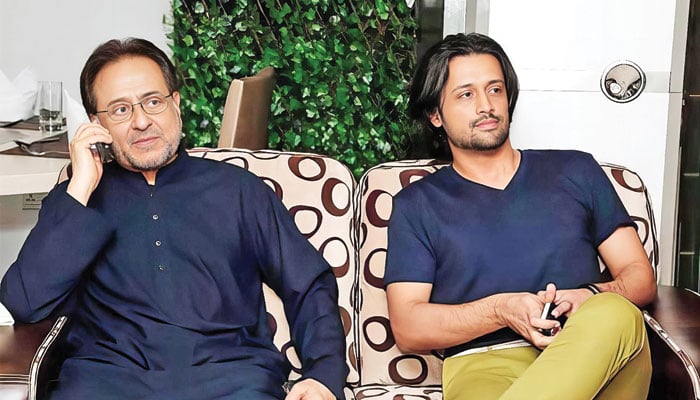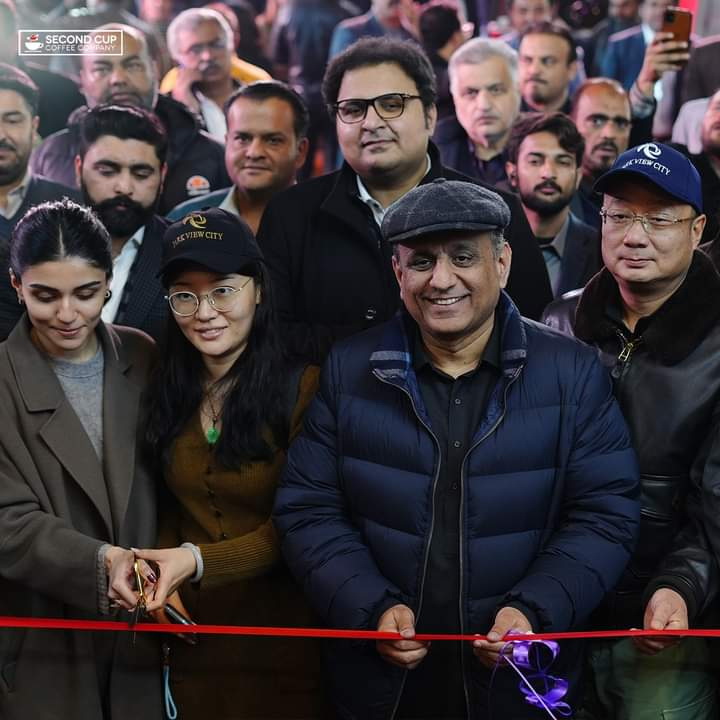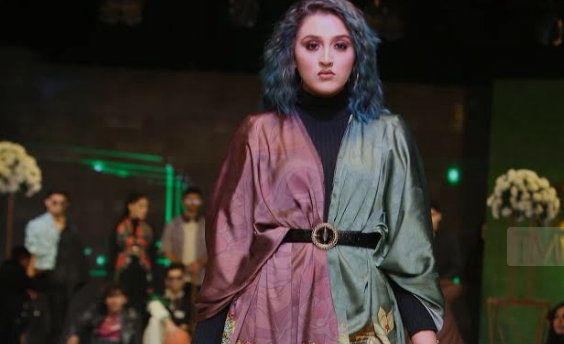A Life in Frames: Nadeem Baig on Karachi and the Golden Age of Cinema
By Akhter Ali Akhter
The magic of Nadeem Baig, Pakistan’s most successful film icon,
remains undiminished even after decades in the industry. His illustrious career is marked by a series of unforgettable, record-breaking films. The phrase “He came, he saw, he conquered” perfectly captures his journey. His debut film Chakori, released in the summer of 1967, changed his life. Not only did the film break several records, but it also earned him the prestigious Nigar Award for his remarkable performance.
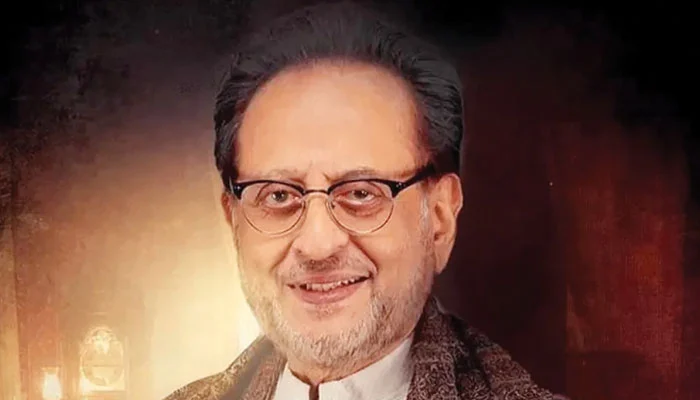
In 1977, his film Aina made cinematic history by running for 401 weeks in Karachi cinemas — a record that remains unmatched. Released in the first quarter of 1977, Aina continued to captivate audiences until January 1982 — marking an epic run of 4 years, 9 months, and 27 days.
Nadeem Baig has truly reigned over show business for decades, and his legacy is unmatched, with more than 200 films to his name. Beyond acting, he earned fame as a singer, producer, and director, accumulating a multitude of awards along the way.
Ask anyone who was a fan of Pakistani cinema during its golden years, and they will recall Nadeem’s legendary pairing with actress Shabnam. Their on-screen chemistry became one of the most beloved in Pakistani cinema history.
Their films — Anari, Pehchan, Qurbani, Dehleez, and Aina — were all massive hits, with Aina being the only film to celebrate a Crown Jubilee in Pakistan’s cinematic history.
Over the years, Nadeem has amassed a remarkable collection of awards — approximately 20 Nigar Awards, alongside the Pride of Performance, which he received from President Ghulam Ishaq Khan in 1990–91.
Later, Nadeem successfully transitioned to television, where he once again demonstrated his versatility and talent. His memorable TV serials include Hyderabad Junction, Yeh Bhi Kisi Ki Beti Hai, Haar Jeet, Raakh Mein Chingari, Wujood, Ambulance, Basaat, Chalte Chalte, Chehre, Mohabbat Ka Aik Pehar, Ek Safar Tanhaai Ka, Jaise Jaante Nahin, Silsilay Chahton Ke, Riyasat, Saheli, Majboori, Aina, Kitne Door Kitne Paas, and Sej.
He also hosted the PTV show Meray Nadeem.
Initially, the actor reprised his signature romantic roles, but within a few years, he expanded his range considerably. He took on diverse characters — from fathers of heroes and heroines to doctors leading medical teams, and protagonists in various theatrical productions.
His film career continued simultaneously. He delivered memorable performances in Reema Khan’s directorial debut Koi Tujh Sa Kahan; he portrayed Resham’s ‘Tycoon Husband’ in Pehla Pehla Pyar, and played the reconstructive surgeon who transforms Ahmed Butt’s face into Humayun Saeed’s in Mein Ek Din Laut Kay Aaoon Ga. He also appeared as Saeed’s father in Main Hoon Shahid Afridi and featured in Imran Malik’s Azaadi.
His standout performance came in the 2019 film Superstar, where audiences embraced his portrayal of Mahira Khan’s grandfather, Agha Jan — a mentor figure who takes Bilal Ashraf’s character under his wing. After years of smaller roles, Nadeem finally received substantial screen time in films. He rose to the occasion and became a cornerstone of the film’s success. He continued this momentum in Parey Hut Love, playing Maya Ali’s father, and delivered an exemplary performance as a film director seeking his final triumph. Nadeem also played a significant role in Shaan Shahid’s 2022 film Zarrar.
At his Karachi residence, Nadeem Baig recalls the city’s past vibrance, discusses the current state of cinema, and pays tribute to poets and fellow actors of his generation.
Instep: How do you compare today’s Karachi to the Karachi of the past?
Nadeem Baig (NB): The Karachi I remember was beautiful. Streets were washed every night. Now, it feels as though the streets themselves have vanished. Things have deteriorated so badly that I had to move far away.
Instep: Your pairing with Shabnam was legendary. What do you think made it so successful?
NB: I did more films with Shabnam than with any other actress. When she returned to the industry, we were often cast together — and audiences loved our chemistry.
Instep: What are your thoughts on the current state of the film industry?
NB: It pains me. No government has ever taken the industry seriously. I campaigned for a national film academy, but no one paid attention. Back in the day, we had brilliant teamwork — talented musicians, visionary directors, and strong writers. That’s what made our films successful.
Instep: Tell us about your early life and childhood.
NB: I was born on July 19, 1941, in Vijayawada, Madras, India. My father worked for a well-known oil company. We migrated to Pakistan in the 1960s. I lost my mother when I was just 3 or 4, and my grandmother raised me. I studied at Nazimabad Government School, completed my matriculation from Sindh Madrasa, and graduated from Islamia College, alongside Talat Hussain. I was passionate about cricket and singing. In fact, I played in the Quaid-e-Azam Trophy. I wanted to join the Air Force, but a hearing issue disqualified me. I then attempted to study science with the intention of becoming a doctor — but gave up on the very first day.
In Dhaka, I worked in an office while also singing on radio and television in both Urdu and Bengali. That’s where I met Captain Ehtesham, who cast me in Chakori.
Instep: You were initially selected as a singer for Chakori. How did you end up playing the lead?
NB: I was called to sing ‘Kahan Ho Tum Ko Dhoond Rahi Hai’ for Chakori. But when the lead actor dropped out, Ehtesham Sahib asked me if I’d consider acting. I initially refused, but eventually agreed. He first cast me as a villain — I even grew a moustache for the role. Later, I was told I’d be playing the hero — and had to shave it off.
Instep: How did you feel when your debut film released?
NB: I was scared. At the premiere, I sat in the back row but left before the film even started. I thought people would criticise my performance. But later, I found out the audience loved it.
Instep: Do you think art-ists are valued in Pakistan?
NB: Not as much as they deserve to be. I’ve been fortunate to receive a lot of love and respect, but as a society, we still have a long way to go. A nation’s identity is built on its culture, not just its agriculture.
Instep: You also produced a Punjabi film. How did that happen?
NB: I produced two films — Mitti Ke Putlay (1974), which won the Lenin Prize in the USSR, and Mukhra (1988), a romantic-comedy Punjabi film well received by audiences. I made it during a time when Urdu cinema had slowed down.
Instep: What would you say is the biggest difference between film and television work?
NB: TV lacks the impact of cinema. Films leave a lasting impression. I’ve never watched my own television serials. The flow of a story is often interrupted by commercials, which disrupt the mood. Films are like paintings — television shows are more like photographs.
Instep: What were your relationships like with Muhammad Ali and Waheed Murad?
NB: Waheed was a close friend, even before we entered films. He was a superstar. With Ali Bhai, it was a bond of respect. I was nervous working opposite him in Baazi, but he made me feel at ease and encouraged me.
Instep: You began your career with black-and-white films. What was the shift to colour like?
NB: It was magical, but it also meant more attention to detail in wardrobe, makeup, and set design.
Instep: Why did you only do one Indian film?
NB: I did Door Des, but turned down other offers — some were controversial, while others clashed with my schedule.
Instep: When did you get married?
NB: A year after Chakori, I married Farzana in Dhaka. We have two sons, Mirza Farhan Baig and Mirza Faisal Baig. I even acted in a TV drama that one of my sons directed.
Instep: Do you follow politics?
NB: No, politics isn’t my cup of tea. It’s always the same faces, over and over again.
Instep: Do you enjoy reading?
NB: I love poetry — especially the works of Faiz, Faraz, Ghalib, and Mir.
Instep: What are some of your favourite films?
NB: Qurbani, Lazawal, Dehleez, Chakori, and Dillagi.
Instep: Did fame ever go to your head?
NB: Never. I’ve always remained grounded. These days, young actors change with a little fame. I believe in staying humble and grateful.
Instep: Was Dilip Kumar an influence on your acting?
NB: I admired his work greatly. His style did influence me early on — but I never copied him. I made sure to develop my own identity as an actor.

